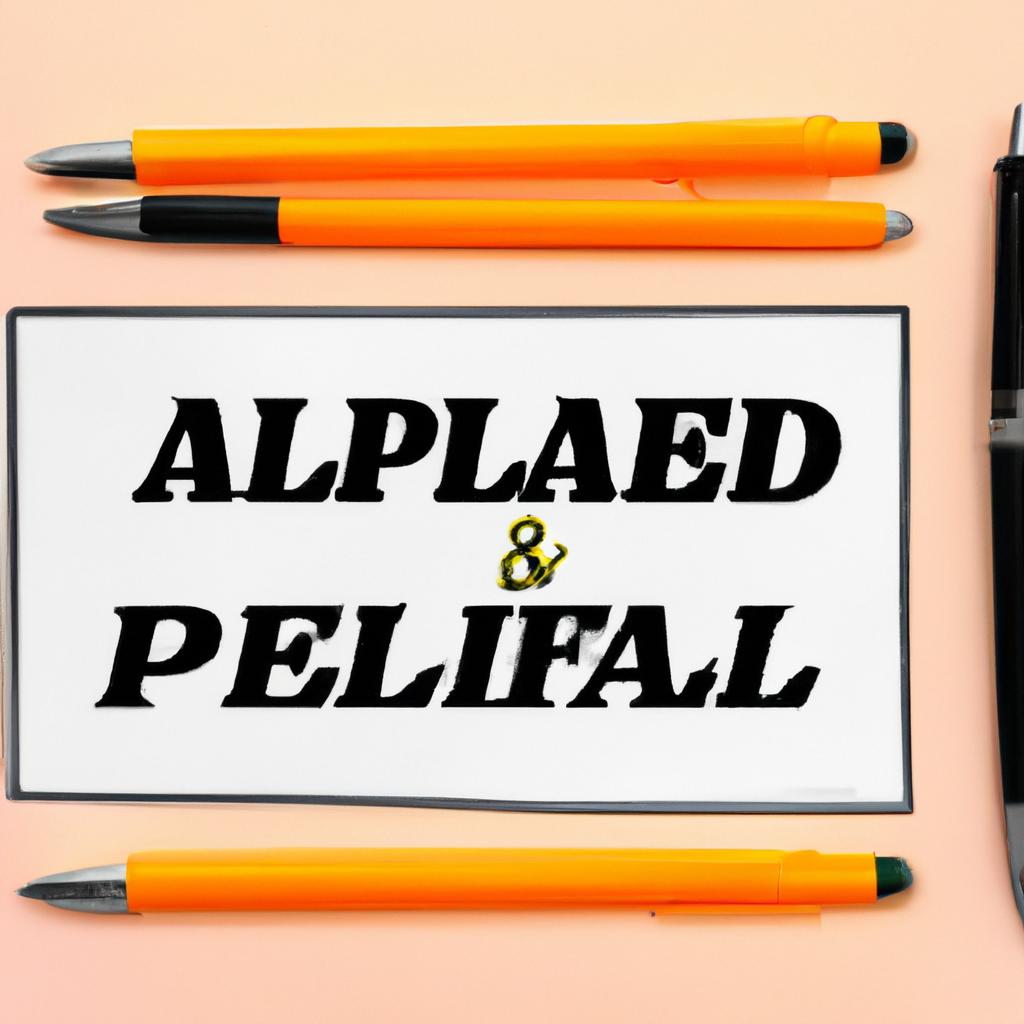As experienced legal professionals at Morgan Legal Group, based in the heart of New York City, we understand the importance of safeguarding your hard-earned assets. In an era where the cost of long-term care continues to rise, it is crucial to explore the best strategies for protecting your wealth from potential nursing home expenses. In this article, we will delve into the various options available to individuals seeking to shield their assets and ensure financial security in the face of uncertain circumstances. Join us as we unravel the complexities of asset protection and empower you with the knowledge needed to make informed decisions for your future.
Strategies for Safeguarding Your Assets Against Nursing Home Costs
When it comes to safeguarding your assets against the soaring costs of nursing homes, it is crucial to be proactive and strategic in your approach. As experienced attorneys in the field of elder law, we understand the importance of protecting what you have worked hard to accumulate over the years. One effective strategy is to consider asset protection planning well in advance, rather than waiting until the need for long-term care arises.
Utilizing legal tools such as irrevocable trusts, Medicaid planning, and gifting strategies can help shield your assets from being depleted by nursing home expenses. By working with a knowledgeable attorney who specializes in elder law, you can create a comprehensive asset protection plan tailored to your unique financial situation and goals. Taking the time to plan ahead can provide peace of mind knowing that your assets are safeguarded for your future and your loved ones.

Maximizing Medicaid Eligibility Through Proper Planning
When it comes to protecting your assets from nursing homes, proper planning is essential. Maximizing Medicaid eligibility through strategic planning can help safeguard your hard-earned assets and ensure that you receive the care you need without depleting your finances. Utilizing various legal strategies, such as setting up trusts and creating structured gifting plans, can help you qualify for Medicaid benefits while preserving your wealth.
At Morgan Legal Group, we specialize in estate planning, elder law, and asset protection. Our team of experienced attorneys can help you navigate the complexities of Medicaid eligibility and develop a personalized plan to safeguard your assets from nursing homes. By taking proactive steps to protect your assets, you can ensure that you and your loved ones are financially secure while receiving the care you need.

Utilizing Trusts and Advanced Estate Planning Techniques
can be a strategic way to protect your assets from potential nursing home costs. By carefully crafting a trust, you can ensure that your assets are shielded from creditors and potential claims, including those related to nursing home expenses. Trusts can be designed to provide for your loved ones while also safeguarding your wealth.
One effective option is to establish an irrevocable trust, which cannot be altered or revoked once it is in place. This type of trust can be structured to hold assets that are protected from nursing home costs, as they are technically no longer considered your property. Additionally, utilizing advanced estate planning techniques such as gifting assets to loved ones or creating a Medicaid asset protection trust can also help shield your assets from being depleted by nursing home expenses in the future. Trusts can provide peace of mind knowing that your assets are protected and can be distributed according to your wishes.
| Irrevocable Trust | Asset protection |
| Medicaid Asset Protection Trust | Protect assets from nursing home costs |

Seeking Legal Counsel for Tailored Asset Protection Solutions
When it comes to protecting your assets from the potential costs of nursing home care, is crucial. At Morgan Legal Group, we understand the importance of safeguarding your hard-earned wealth and ensuring that it is preserved for future generations. Our team of experienced attorneys specializes in creating customized asset protection plans that are designed to meet your specific needs and goals.
One of the best ways to protect your assets from nursing homes is to establish a comprehensive estate plan that includes tools such as trusts, durable powers of attorney, and healthcare directives. By working with our team at Morgan Legal Group, you can gain peace of mind knowing that your assets are shielded from potential creditors and other threats. Don’t wait until it’s too late – contact us today to schedule a consultation and start safeguarding your financial future.
Q&A
Q: What is the best way to protect your assets from nursing homes?
A: Many individuals fear losing their hard-earned assets to nursing home costs. So, what can you do to safeguard your wealth?
Q: Can I simply transfer my assets to my children to avoid nursing home costs?
A: While transferring assets to loved ones may seem like a good idea, it can have unintended consequences. Medicaid has a five-year lookback period during which any significant asset transfers can disqualify you from receiving benefits.
Q: What about creating a trust to protect my assets?
A: A trust can be a useful tool for asset protection, but it must be set up correctly and in advance to be effective. Consulting with an estate planning attorney can help you navigate this option.
Q: Should I consider purchasing long-term care insurance?
A: Long-term care insurance can be a good investment for some individuals, but it may not be the best option for everyone. It’s important to weigh the costs and benefits before making a decision.
Q: Are there any legal strategies I can use to protect my assets from nursing home costs?
A: Yes, there are legal strategies such as creating irrevocable trusts, gifting assets within the allowable limits, and purchasing annuities. Consulting with a legal professional who specializes in elder law can help you determine the best approach for your specific situation.
Key Takeaways
In conclusion, safeguarding your assets from nursing homes requires careful planning and foresight. By considering various strategies such as setting up trusts, purchasing long-term care insurance, and consulting with legal experts, you can ensure that your hard-earned assets are protected for the future. Remember, it’s never too early to start planning for the unexpected, so take the necessary steps today to secure your financial well-being tomorrow. Thank you for reading and best of luck in safeguarding your assets!
 What Is the Best Way to Protect Your Assets from Nursing Homes
What Is the Best Way to Protect Your Assets from Nursing Homes
As we age, our healthcare needs may increase, and many of us may need to move into a nursing home or assisted living facility. While these facilities are meant to provide care and support for seniors, the cost can be exorbitant, with the average cost of a private room in a nursing home being $8,365 per month. This cost can quickly deplete a person’s life savings, leaving them with little to no assets to pass on to their loved ones.
Fortunately, there are steps you can take to protect your assets from nursing homes and ensure that your hard-earned money remains in your control. In this article, we will discuss the best ways to safeguard your assets and provide you with practical tips to help you get started.
1. Understand Medicaid Rules and Exemptions
Medicaid is a government-funded program that provides financial assistance for long-term care for those who qualify. However, there are strict eligibility requirements that must be met, including asset limits. To be eligible for Medicaid, you must have no more than $2,000 in countable assets, excluding your primary home and certain exempt assets such as a car or personal belongings.
This means that to qualify for Medicaid, you may need to spend down your assets, including selling your home, to meet the asset limit. However, there are planning strategies that can help you protect your assets and still qualify for Medicaid. These strategies include setting up a trust, gifting assets to loved ones, or pre-paying funeral expenses. It is crucial to consult with a Medicaid planning attorney to ensure that you are following all rules and regulations.
2. Plan Ahead with Long-Term Care Insurance
One way to protect your assets from nursing home costs is to invest in long-term care insurance. This type of insurance can provide coverage for nursing home or assisted living costs, as well as in-home care. The earlier you purchase this insurance, the lower the premiums will be. When choosing a policy, make sure to read the fine print and understand what expenses are covered, as not all policies are the same.
3. Consider a Life Estate Deed
A life estate deed is a legal document that allows you to transfer ownership of your home to your beneficiaries while still retaining the right to live in the property until you pass away. This can help protect your home from being counted as an asset for Medicaid eligibility purposes, as the property technically belongs to your beneficiaries. However, this option may not be suitable for everyone, and it is essential to consult with an attorney to understand the implications fully.
4. Keep Assets Separate
If you are married and may require long-term care in the future, it is crucial to keep your assets separate. This means holding separate bank accounts, investments, and titles to property. If all your assets are jointly owned with your spouse, they may be considered fair game for nursing home costs. Keeping your assets separate can help ensure that your spouse’s financial well-being is not jeopardized if you require long-term care.
5. Plan for Incapacity
While the focus of asset protection is usually on nursing home costs, it is essential not to overlook the potential for incapacity. If you become incapacitated, someone else will need to make decisions on your behalf. Without proper documents in place, such as a power of attorney, a court may end up appointing a guardian for you. This can quickly drain your assets in court fees and legal costs. Planning for incapacity can help ensure that your assets are protected and that your wishes are respected.
Benefits and Practical Tips:
– By protecting your assets, you can leave a legacy for your loved ones and not have to worry about the financial burden of long-term care.
– Start planning early to have more options and flexibility when it comes to protecting your assets.
– Seek professional advice from an attorney or financial advisor to ensure that you are following the necessary steps to protect your assets.
Case Study:
Jane and John are a married couple in their 60s, and they have been saving for retirement for years. However, John’s health starts to deteriorate, and he requires full-time care in a nursing home. After a few months, their combined savings are nearly depleted, and Jane is worried there won’t be enough money left for her care. By consulting with an attorney and restructuring their assets, they were able to protect their home and savings from nursing home costs, providing Jane with financial security for her future.
In Conclusion:
Planning for the possibility of long-term care and nursing home costs is crucial to safeguarding your assets. By understanding Medicaid rules and exemptions, purchasing long-term care insurance, considering a life estate deed, keeping assets separate, and planning for incapacity, you can protect your assets and provide peace of mind for yourself and your loved ones. Remember, it is never too early to start planning, so take the necessary steps today to secure a financially stable tomorrow.

